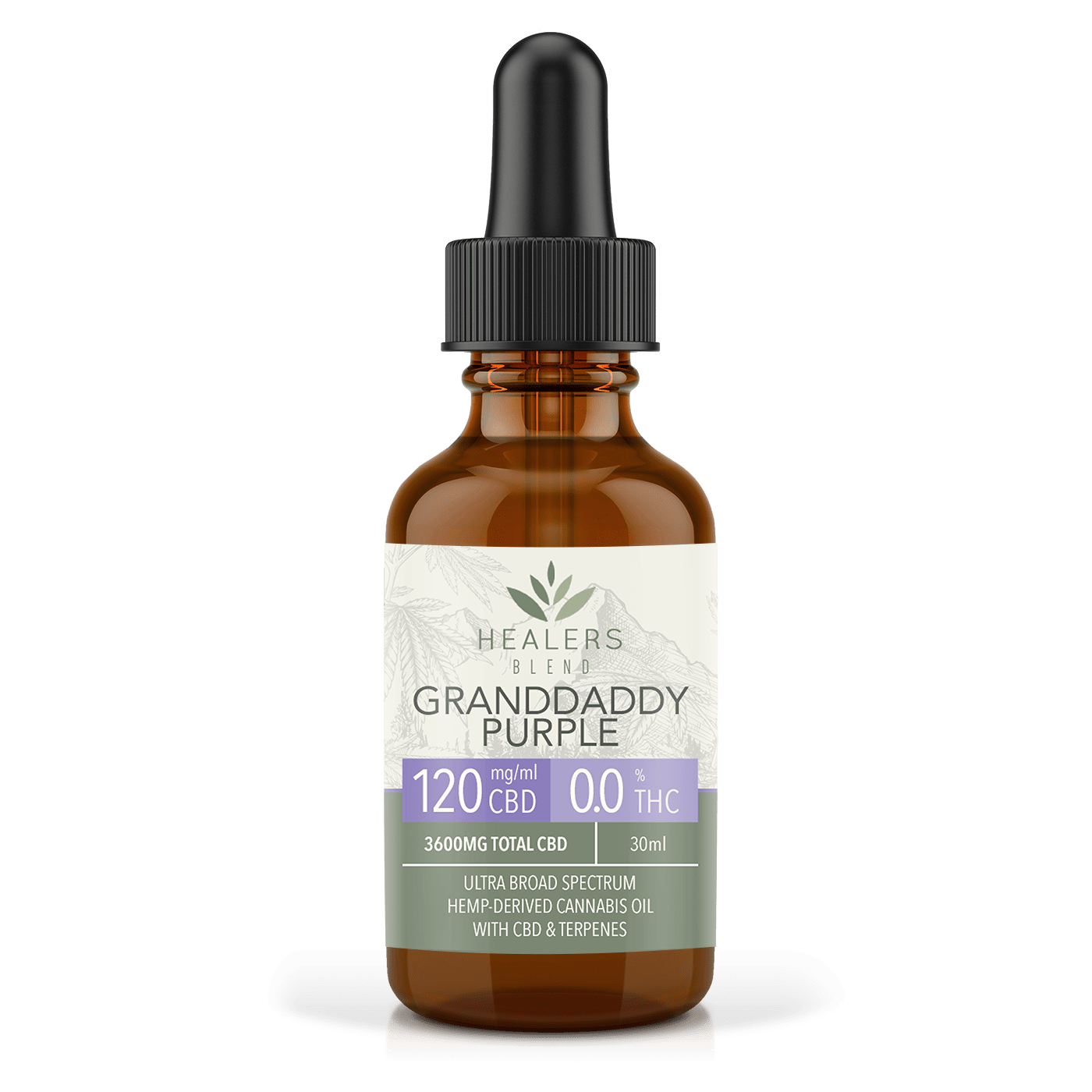Welcome to the Healers Blend Learning Lab! The information in these pages are designed for both the general consumer, as well as, health and medical practitioners seeking to expand their working knowledge of cannabis and the potential of cannabinoid based therapies. While we work to ensure the information in these pages and resources is accurate and up to date, we do not make any claims as to the veracity or totality of the information contained herein. Research into cannabis as medicine is ongoing and our understanding of its many potential benefits continues to grow everyday. Our hope is that you will find this information beneficial and inspiring in your own search to better understand the potential of this incredible plant to increase overall health, vitality, and well-being. CBD products are not approved by the FDA for the diagnosis, cure, mitigation, treatment, or prevention of any disease. We are restricted from making any claims about the efficacy of our specific CBD products to treat or cure any disease or medical conditions. You should always seek the advice of a physician before adding nutritional supplements to your diet. The following information is presented for educational purposes only. Healers Blend provides this information to provide an understanding of the potential applications of cannabidiol. Links to third party websites do not constitute an endorsement of these organizations by Healers Blend and none should be inferred.
Research on CBD Oil for Asthma
Research on CBD Oil for Asthma and many other diseases is currently taking place in science labs around the world. In developed countries alone, atopic diseases such as asthma and dermatitis affect nearly 20% of the population. In the mid-60s scientists were able to synthesize the two most important cannabinoids, namely Δ9-tetrahydrocannabinol (THC) and cannabidiol (CBD). CBD is the main non-psychoactive cannabinoid and has been shown to have therapeutic effects across numerous pathological conditions. These include neuropsychiatric illnesses, addiction, brain inflammatory disorders, mood disorders, skin conditions, etc., without significantly activating the main endocannabinoid receptors. Due to these beneficial effects and low toxicity even when administered chronically in humans, scientists have been considering CBD for asthma as a feasible novel treatment.
What is asthma?
Asthma is described as a disorder of the conducting airways which causes easy and excessive contraction of the said airways in response to numerous internal and external stimuli.
This hyper-responsiveness of the airways is portrayed along with heightened irritability of airways and uncontrollable mucus secretion. Asthma has different clinical expressions that are accentuated through various environmental factors that affect the airways, causing chronic inflammation. A number of other factors are involved in this phenomenon, for example, edema, smooth muscle contraction, and airway remodeling.
As mentioned above, CBD, the recently discovered component of the Cannabis sativa plant, has shown to exert potent analgesic, anti-inlfammatory and immunomodulatory effects that could prove effective in the management of atopic disorders such as asthma. Cannabinoids exert these effects through in ways that are still unknown and scientists are busy trying to get this information.
Recently, studies have shown the involvement of CBD in control receptors associated with the control of inflammatory response, expression, and genetic transcription. CBD has also shown numerous functional effects in the treatment of various diseases, including: colitis, sepsis-related encephalomyelitis, and inflammatory lung diseases. Furthermore, it has been demonstrated that CBD is well tolerated in both animal models and human clinical trials, without significant side effects.
Current Asthma Treatment
The treatment of asthma remains a huge problem for the medical community, not to mention the patients suffering from this acute condition. Therapy often involves a combination of different medications such as: bronchodilators, leukotriene modifiers, corticosteroids, and in the recent years, target-directed therapies including: anti-IgE and anticytokines.
That being said, all of the mentioned treatments have their advantages and limitations, such as the incidences of adverse side effects. Additionally, those suffering from drug-resistant asthma, despite intensive treatment, still suffer. As a result, there is a clear need to find new ways of controlling this respiratory disease.
Evidence of CBD Oil’s Efficacy for Treating Asthma
A study tested the effects of CBD on guinea-pigs induced with an antigen with an asthma-like reaction in order to test its ability to interfere with the effects of the antigen. In the results, the scientists concluded that the use of CBD to target cannabinoid receptors could prove a novel preventative therapeutic method for controlling asthma.
Another review focused on the effects of cannabinoids on allergic/immune reactions, neuroinflammation and inflammation pain. In their conclusions, the scholars noted that the presence of endocannabinoid components in the central nervous system, combined with high levels of CB1 expression, is proof that the endocannabinoid system is an important regulator of neuroinflammation and may be used as a possible drug target for illnesses that are made worse by inflammation such as asthma.
In the development of inflammatory diseases such as asthma, there has to be some sort of interaction between T-cell and allergens. A different animal study evaluated the anti-inflammatory potential of CBD in 8-week-old Wistar rat models induced by asthma via ovalbumin (OVA) and treated with 5 mg/kg, i.p. CBD. The results showed the CBD was able to decrease the serum levels of all analyzed cytokines except for IL-10 levels. This demonstrates that CBD might be a potential new therapy for controlling inflammatory response in asthmatic patients.
The Mechanism Behind CBD Oil’s Therapeutic Effects on Asthma
Scientists are still grappling to find the exact methods through which CBD exerts its many therapeutic effects. Taking this into account, there are a few studies that have been trying to shed some light with regards to this matter.
For instance, a group of scientists recognized that even though neurogenic inflammation through the activation of C fibers in the airway is heavily involved in the development of asthma, their regulatory mechanism was still unknown. In a bid to establish these facts, they tested the how cannabinoids are able to modulate inflammatory reactions using guinea-pigs as models.
It was found that the two receptor agonists, anandamide and palmitoylethanolamide, prevented electrical field stimulation-induced smooth muscle contraction, but not neurokinin A-induced contraction.
Furthermore, anandamide and palmitoylethanolamide inhibited the capsaicin-induced release of substance P-like immunoreactivity from airway tissues in the sample. Nevertheless, anandamide did not inhibit capsaicin-induced bronchoconstriction. These findings suggest that CBD works to reduce inflammation in asthma by inhibiting the activation of C fibers through CB2 receptors and maxi-K+ channels and may present a novel target for treating asthma and similar conditions.
Side Effects of Using CBD for Asthma
Generally, the side effects of using CBD oil for asthma and other atopic conditions is very limited. That being said, according to information from other studies, CBD has a high safety profile, with minimal and mild side effects.
Some of these known side effects include:
- Inhibition of hepatic drug metabolism
- Dry mouth
- Increased tremor in patients with Parkinson’s at high dosages
- Decreased appetite
- Light headedness at high dosages
- Sleepiness
Conclusion
More research is needed before we can understand the full efficacy of CBD oil as a treatment for asthma. More so, it will be a while until a conventional CBD for asthma medicine hits the shelves. But as of now, we can only remain hopeful that soon, we will know exactly how CBD works to modulate the effects of asthma.
Below is a list of all the relevant case studies, reviews, research and anecdotal reports concerning the effects of CBD on asthma. We update the information on this page regularly, so, come back and you will be the first to know in case of any new updates or developments in this field.
Research Studies on the effects of CBD oil to treat Asthma:
- The role of cannabinoids in inflammatory modulation of allergic respiratory disorders, inflammatory pain and ischemic stroke
- Allergen challenge increases anandamide in bronchoalveolar fluid of patients with allergic asthma
- Activation of cannabinoid receptors prevents antigen-induced asthma-like reaction in guinea pigs
- Endogenous cannabinoid receptor agonists inhibit neurogenic inflammations in guinea pig airways
- Bronchodilator effect of delta1-tetrahydrocannabinol
- Evaluation of Serum Cytokines Levels and the Role of CBDTreatment in Animal Model of Asthma
Medical Research on CBD (cannabidiol)
Clinical studies and case reports on CBD categorized by condition:
-
Research on CBD Oil for Acne
-
Research on CBD Oil for ADD – ADHD
-
Research on CBD Oil for Addiction
-
Research on CBD Oil for AIDS
-
Research on CBD Oil for ALS
-
Research on CBD Oil for Alzheimer’s Disease
-
Research on CBD Oil for Anorexia
-
Research on CBD Oil for Antibiotic Resistance
-
Research on CBD Oil for Anxiety
-
Research on CBD Oil for Arthritis
-
Research on CBD Oil for Asthma
-
Research on CBD Oil for Atherosclerosis
-
Research on CBD Oil for Autism (ASD)
-
Research on CBD Oil for Bipolar Disorder
-
Research on CBD Oil for Cancer
-
Research on CBD Oil for Chronic Pain
-
Research on CBD Oil for Depression
-
Research on CBD Oil for Diabetes
-
Research on CBD Oil for Digestive Issues
-
Research on CBD Oil for Endocrine Disorders
-
Research on CBD Oil for Epilepsy – Seizures
-
Research on CBD Oil for Fibromyalgia
-
Research on CBD Oil for Glaucoma
-
Research on CBD Oil for Heart Disease
-
Research on CBD Oil for Huntington’s Disease
-
Research on CBD Oil for Inflammation
-
Research on CBD Oil for Irritable Bowel Syndrome
-
Research on CBD Oil for Liver Disease
-
Research on CBD Oil for Metabolic Syndrome
-
Research on CBD Oil for Migraines
-
Research on CBD Oil for Mood Disorders
-
Research on CBD Oil for Motion Sickness
-
Research on CBD Oil for Multiple Sclerosis (MS)
-
Research on CBD Oil for Nausea
-
Research on CBD Oil for Neurodegeneration
-
Research on CBD Oil for Obesity
-
Research on CBD Oil for OCD
-
Research on CBD Oil for Osteoporosis
-
Research on CBD Oil for Parkinson’s Disease
-
Research on CBD Oil for PTSD
-
Research on CBD Oil for Rheumatism
-
Research on CBD Oil for Schizophrenia
-
Research on CBD Oil for Sickle Cell Anemia
-
Research on CBD Oil for Skin Conditions
-
Research on CBD Oil for Sleep Disorders
-
Research on CBD Oil for Stress
-
Research on CBD Oil for Strokes






